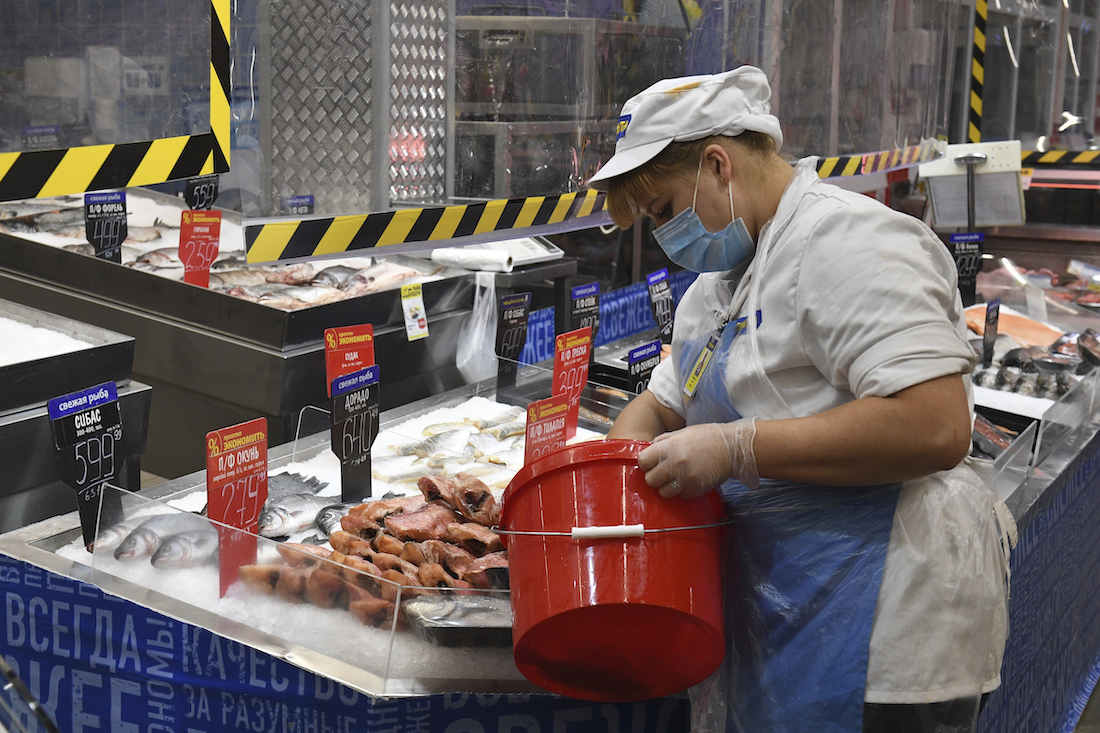In the information age, Americans have tended to elevate certain jobs and careers over others, leading to a general resistance to “blue collar” work and an over-glorification of desk jobs, start-ups, and “creative spaces.”
Reinforced by constant cultural calls to “follow our passions” and pursue four-year college degrees, workers have become narrowly focused on a shrinking set of job prospects in sectors like technology, finance, marketing, and activism. Such attitudes have led to an ever-widening skills gap in the trades and service sectors. But at a deeper level, they have diminished our cultural imaginations when it comes to how we think about the value and dignity of work itself.
Contrary to prevailing cultural assumptions, many of the jobs that we sideline or ridicule as “less lucrative” or “less meaningful” are critical to keeping our civilization running. Amid the pain and destruction of COVID-19, this reality has become increasingly clear, giving us a unique opportunity to realign our perspectives about “meaningful work” and renew our culture’s appreciation for those working and serving across all corners of the economy.
Since the lockdowns of early spring, governments have made a variety of their own distinctions between “essential” and “non-essential” businesses, trying to determine what is necessary for day-to-day survival. States have varied in their individual interpretations, but according to the National Conference of State Legislatures, most have agreed on several key sectors: “critical retail” (e.g., grocery stores, hardware stores, mechanics), “critical trades” (construction workers, electricians, plumbers, etc.), water and wastewater, child care, energy, agriculture and food production, and transportation. Whatever one thinks of such a list – too short, too long, too arbitrary – it provides at least some sort of signal as to how our society currently organizes its priorities.
Throughout the darkest days of the pandemic, workers in these areas have stood fast on the front lines, meeting society’s most pressing needs despite the risks. Despite being the “chosen ones” in a moment of crisis, these occupations have long been relegated to a cultural status of “vocational consolation prizes” – last resorts on a longer journey toward a “better life.”
As Victor Davis Hanson explains, such work is far more essential to our economic life than we have tended to see or believe. The pandemic reminds us that we should stop taking it for granted.
He says:
When I see this panic buying and shelves empty from largely urban and suburban shoppers, I ask myself, “Where do they think this stuff comes from, that was stocked by people of the lower middle class that worked all night?” It was supplied by truckers who came from packing houses and food processing plants and directly from farms, being worked by people on tractors, farming engineers, hydrologists, farm laborers, farm managers who have not taken one moment off.
What I do, and what an advertiser does, or a high-priced corporate lawyer – a lot of these jobs are not essential to keep us alive one more day. A fracker is. A farmer is. A trucker is. And yet somehow, we have lumped these people in as the losers of globalization. People who are very lowly compensated are doing everything, and they’re essential. I hope people will begin to see that shift in their estimation of what’s important and what’s not.
Of course, a divide in cultural attitudes doesn’t mean a divide in economic organization. These workers help to bring food to our tables and warmth to our houses. In doing so, they contribute to extensive networks of creativity and exchange that weave together the fabric of civilization. These are not isolated workers or industries, operating separately from “white-collar” laborers in “prestigious” vocational paths. In the space between producer and consumer, worker and coworker, business and consumer, we see a diversity of intersecting roles, gifts, and innovations – embodying creativity, wise stewardship, measured risk-taking, and creative service for the love of our neighbor and the glory of God – whatever our neighbor’s status or station.
Thankfully, given our newly heightened awareness, many are finally beginning to hail such workers as heroes and “first responders.” But one wonders how long the celebration will last, and whether our momentary gratitude will translate into our long-term perspectives about which jobs are deemed worthy of our energy, investment, and praise. Yes, these workers are on the “front lines,” but they always were – creating, working, and serving within miraculous supply chains that bring us milk, masks, medicine, and toilet paper. Yes, these workers contribute to untold social and economic flourishing, but they always have. In the years to come, we should be careful that do not forget this reality, particularly as we guide future generations into the workforce.
In doing so, however, we must also be careful about treating the government’s narrow and arbitrary categories for “essential work” as some definitive framework. Such distinctions are helpful in highlighting our cultural hypocrisy, but if we follow them too closely, they will lead us into their own ditches of conformity. In acknowledging our lopsided popular perceptions, the lesson is not that so-called “essential work” is somehow greater, more noble, or more meaningful – though there are certainly distinctive elements worthy of praise. To the contrary, it reveals that all work deserves an equal place in our economic imagination.
The real challenge, it would seem, is recognizing the value and dignity of all work, regardless of the particular economic challenges of the day or our personal lists of economic priorities and vocational preferences. Hopefully, the problems of the pandemic will yield a greater understanding and appreciation for the interconnectedness of the modern economy, allowing us to embrace and celebrate all kinds of work – to appreciate all of its essentialness, meaningfulness, and complexity.
If our work actually serves our neighbor, it blesses civilization and brings meaning to life.

